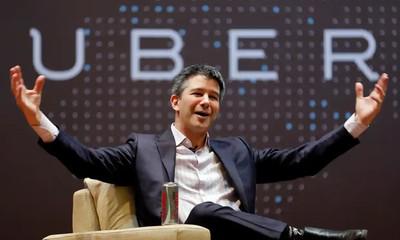On July 11, many foreign publications published investigations about Uber companies, one of the main services for ordering a taxi in the world. The articles were prepared on the basis of an archive of 124,000 internal documents of the company that came into the possession of The Guardian and studied by 180 journalists from 40 publications with the participation International Consortium of Investigative Journalists (ICIJ). The leak concerns five years from 2013 to 2017, the period when Uber was actively expanding around the world. Meduza recounts the main conclusions made by journalists in these investigations.
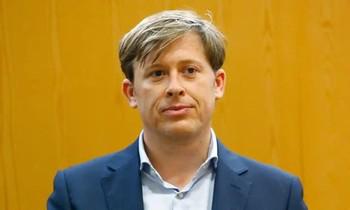
Experts interviewed by journalists believe that the use of a “breaker” could constitute an obstruction of justice; representatives for Uber and Kalanick deny this. At the same time, the former head of the legal department of Uber in Europe, Zak de Kiwit, was fined for non-execution of a warrant after the police were unable to access computers during a search in Amsterdam (the company also removed documents from the office in advance).
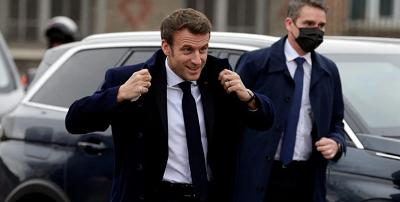
Journalists found at least a dozen messages between Macron and Uber between September 2014 and February 2016. At least four times he personally met with Travis Kalanick. Mark McGann, Uber’s chief lobbyist in Europe, described the first meeting as “amazing”: at it, Macron, in particular, expressed a desire to help circumvent a new bill that would severely restrict Uber’s activities.
According to The Washington Post, it follows from the documents that Uber was sometimes surprised at the scale of support from the minister. One of the lobbyists called him “a real ally.” In particular, Macron, according to the documents, asked his employees to recommend that the directorate responsible for competition be “less conservative” in interpreting the laws in relation to Uber. The directorate denied that they were subjected to pressure from Macron.
The top management of Uber corresponded with Macron even after the service was partially limited in Marseille in October 2015. In the letters, the future President of France promised to personally consider the current situation. Restrictions were soon eased, which the company took as a victory.
It follows from the publications that Uber and Emmanuel Macron could have reached an agreement that would make it easier for UberX to work with professional drivers in France in exchange for closing the UberPop service with amateur drivers. On July 3, 2015, Macron wrote to Travis Kalanick that Interior Minister Bernard Cazeneuve had “agreed to the deal” and would “calm down the taxi” while he himself would begin work on reform and change in the law. On the same day, Uber shut down UberPop in France; a few months later, the French authorities passed a decree reducing the required number of training hours for professional drivers.
Both Kaznev and Uber representatives deny the existence of such a deal. The Élysée Palace said Macron was in a position to communicate with companies involved in the transformation that was taking place at that time in the service sector.
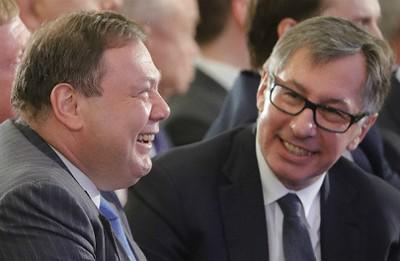
In February 2016 LetterOne Friedman and Aven invested $200 million in Uber. It also emerged from the documents that Uber gave LetterOne the option to later buy $50 million worth of the company’s stock at a bargain price. However, one of the terms of the deal was the hiring of a lobbyist, Alfa Bank top manager Vladimir Senin (now he is a State Duma deputy from United Russia). Senin was offered to pay a salary of 50 thousand dollars a month. According to the documents, many at Uber did not like this proposal – they wanted to be able to choose a lobbyist from several options, and not accept a candidate imposed by an investor. According to experts interviewed by journalists, hiring Vladimir Senin was a risky move for Uber in terms of US anti-corruption laws.
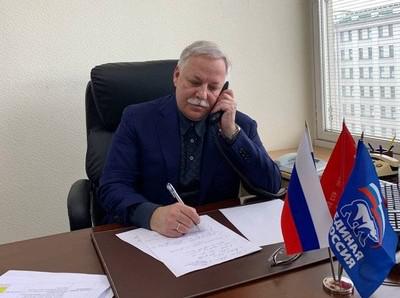
One of the concerns was the possible use of Uber money to pay bribes – during the negotiations, Senin said that $ 800,000 would be needed for work, including the development of a tax bill beneficial to Uber. As a result, Uber agreed to pay the lobbyist $650,000; the draft agreement stipulated that he would have to undergo training and give an obligation not to violate anti-corruption rules. In the end, the draft law, in the development of which Senin allegedly participated, was not adopted. In July 2016, it was decided to leave the lobbyist, while he was paid 300 thousand dollars.
Forbes.ru, 07/11/2022, “WP spoke about Uber’s attempts to find allies among the “oligarchs” to work in Russia”: According to WP, citing leaked documents, Uber management wanted to use Usmanov’s influence to their advantage, but there are no signs that the company actually achieved this in the documents. A spokesman for Usmanov’s USM company, Grigory Levchenko, told the newspaper that purely financial investments were discussed with Uber and USM’s participation was limited to this. Levchenko added that USM made a profit from its investment in Uber.
The co-founders of Alfa Bank Mikhail Fridman and Petr Aven also appeared on the Uber list. […] Aven himself told WP that he remembers a meeting with an Uber representative, but was not involved in LetterOne’s investment in the company and did not lobby on its behalf. “I can comment because it’s simple. I was not associated with Uber at all, ”said the billionaire. Friedman said that he was minimally associated with Uber: with the exception of a meeting with the company’s founder Travis Kalanick, he also did not participate in investing in Uber and lobbying for its interests, the entrepreneur claims. A spokesman for LetterOne told WP that the investment company was not lobbying.
In 2016, during a visit to Moscow, Kalanick met with the head of Sberbank German Gref, WP told. Gref was also eventually included in the list of potential allies in Russia, the newspaper claims. At that time, Uber had a confrontation with the authorities in Moscow: they demanded that the company only attract drivers with a license and use only yellow cars, and Uber believed that this limited its development opportunities. According to The Washington Post, Gref and LetterOne helped the company and the city authorities reach an agreement: in particular, the requirement for the color of cars was removed. Gref and Sberbank did not respond to the newspaper’s inquiries. — Inset K.ru
In the summer of 2017 – shortly after Travis Kalanick, who personally visited Russia a year earlier, left the post of CEO – Uber and its main competitor Yandex.Taxi announced about unification in the post-Soviet space.
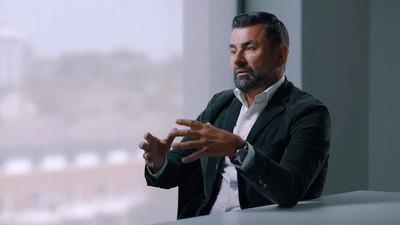
McGann explained his action by the fact that Uber, in his opinion, deliberately violated the laws in dozens of countries and deceived people about the benefits of the business model for drivers. He acknowledged that he bears part of the responsibility for this, and stated that he was guided, among other things, by remorse.
“I’ve spoken to governments, I’ve pushed it through the media, I’ve told people they have to change the rules because drivers will benefit and people will have so many economic opportunities,” he told The Guardian, acknowledging that this was not the case and the company ” selling people lies.
McGann and Uber recently reached an out-of-court settlement over his compensation. In company declaredthat he received 550 thousand euros, and noted that McGann decided to talk about what was happening in the company only after that. The lobbyist himself admitted that he had claims against the company, but urged them to “look at the facts”, which he helped journalists to tell about.
How did Uber react to the investigation?
Company officials said that many of the actions or statements of the former (mostly) top management described in the articles do not reflect the company’s current values.
“Much of what our former CEO [Трэвис Каланик] said almost ten years ago, we wouldn’t make excuses today. But we know for sure that no one at Uber has ever been happy about driver violence, ”commented the vice president of the company, Jill Heselbaker, on the part of the publications that dealt with the use of attacks on drivers to try to influence the law.
“We will not condone past behavior that is clearly inconsistent with our values. Instead, we are asking society to judge us by our actions over the past five years and by what we will do in the future,” she said about the use of the “breaker”.
Travis Kalanick was removed from his position as chief executive by shareholders in 2017 amid a deterioration in the company’s reputation and problems with corporate standards, and in 2019 he finally left the company. His representative named false negative statements of journalists about the businessman. In particular, he stated that Kalanick never issued instructions to obstruct justice in any country, nor did he say that the company should take advantage of violence at the expense of driver safety.

